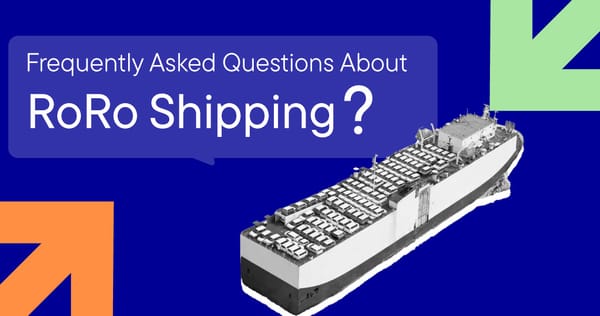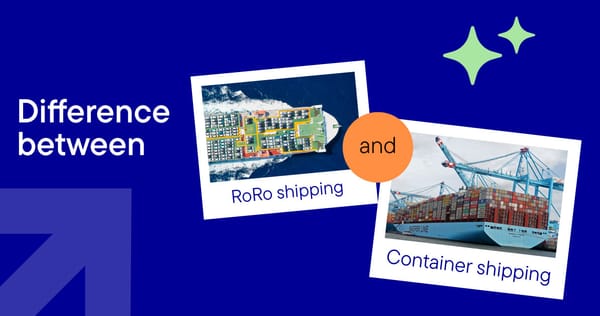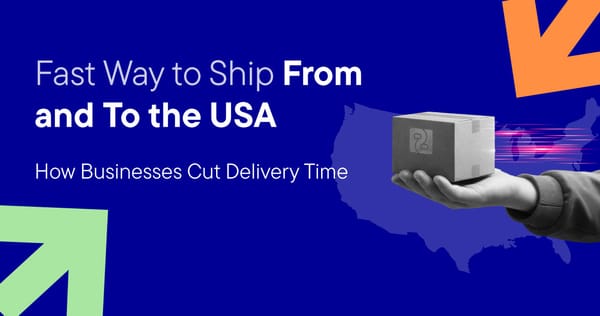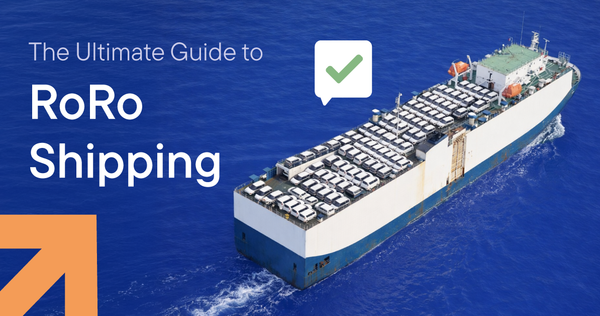Difference Between NVOCC and an International Freight Forwarder?
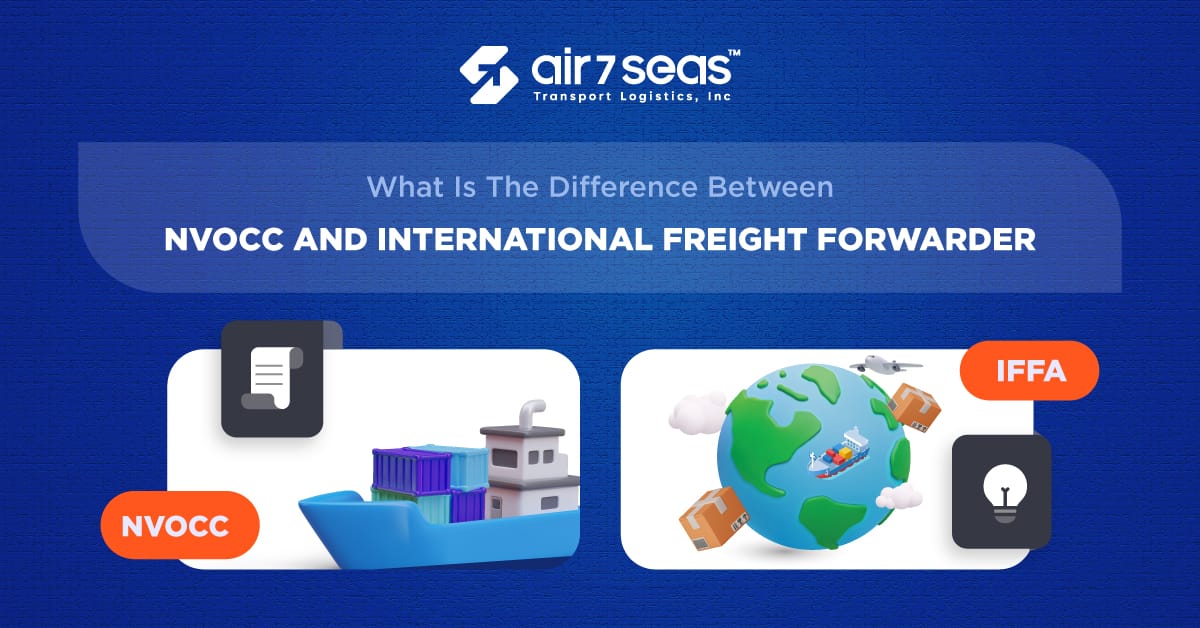
If you frequently import or export to the USA, you would have come across the terms NVOCC and international freight forwarder.
OR
If you are looking for third-party logistics (3PL) services in the USA, you have probably heard of the terms NVOCC and international freight forwarder.
These are common industry buzzwords, and understanding their differences is important.
Because the Federal maritime commission(FMC) classifies both NVOCC and international freight forwarders as Ocean Transport intermediary(OTI).
In this blog, we’ll break down the key differences between NVOCCs and freight forwarders so that U.S. shippers like you can make informed decisions about who should handle your cargo.
What Is an NVOCC and How Does It Work in the U.S. Shipping?
An NVOCC (Non-Vessel Operation common carrier) plays an important role in USA shipping. Unlike VOCCs, NVOCCs do not own a ship. Instead, they buy spaces from VOCCs and resell them to shippers.
Difference between NVOCC and VOCC
A NVOCC takes full responsibility for the cargo during the ocean leg of the journey. Think of it as a carrier without ships, but with the legal authority to handle cargo like one.
Can an FMC-licensed NVOCC issue a Bill of Lading (BOL)?
Yes, a NVOCC can issue a BOL—and that’s one of the biggest points that sets it apart from an international freight forwarder.
Benefits of NVOCC?
A NVOCC can offer several shipping advantages, especially if you are importing or exporting goods from or to the USA.
The benefit includes
- Issues Its Own Bill of Lading (BOL)
- An NVOCC can issue a House Bill of Lading, giving shippers more flexibility and documentation directly tied to their cargo. This makes tracking and claims handling more straightforward.
- Access to Competitive Ocean Freight Rates
- Since NVOCCs buy space in bulk from vessel operators, they often negotiate better rates—especially for Less than Container Load (LCL) shipments. These savings can be passed on to U.S. importers and exporters.
- Acts as a Single Point of Contact
- An NVOCC acts like a carrier, managing everything from booking to documentation to cargo handling, giving shippers a more streamlined international logistics experience.
- Legal Accountability and Carrier-Like Responsibility
- Because an NVOCC is legally considered a carrier under FMC regulations, it assumes responsibility for your cargo during transit.
- Ideal for Complex and Multi-Country Shipments
- If you're handling international freight forwarding with multiple destinations or routing options, an NVOCC may provide more control and visibility over your cargo’s journey.
Just like a NVOCC, a freight forwarder offers several benefits while importing or exporting goods to the USA.
What Does an International Freight Forwarder Actually Do?
International freight forwarders are the trusted middleman between the shipper and the consigne. They make sure the goods are transported smoothly from point A to point B.
U.S. importers and exporters, as well as freight forwarders, are essential partners in navigating complex customs rules, global regulations, and multimodal transport networks.
Can a freight forwarding company issue a Bill of Lading (BOL)?
Freight forwarders do not issue a House Bill of Lading and are not legally considered carriers. That means they aren’t liable for cargo
Benefits of using an international freight forwarder
Just like a NVOCC, freight forwarder offers several benefits while shipping goods from or to the USA
The benefit includes
- Handle Documentation and Customs
- From commercial invoices to packing lists and certificates of origin, a freight forwarder ensures your paperwork is in order. They also assist with U.S. Customs clearance, helping avoid delays, penalties, and costly mistakes.
- Coordinate International Shipments
- An international freight forwarder arranges bookings with carriers (air, ocean, or truck), schedules pickups and deliveries, and manages transshipment points. They don’t own the vessels, but they know how to move your goods through every stage of the journey.
- Act as Your Logistics Consultant
- Need advice on whether to ship LCL or FCL? Want to find the best route for cost or speed? A freight forwarder gives you guidance tailored to your business and cargo type.
- Assist with ISF Filing
- In many cases, U.S. importers rely on their international freight forwarder to handle ISF filing, especially if the forwarder is already managing documentation and customs clearance. Since ISF (Importer Security Filing) is a time-sensitive U.S. Customs requirement, having your forwarder take care of it can reduce compliance risks.
- Provide End-to-End Visibility
- Many international freight forwarders offer online portals or tracking tools, so U.S. shippers can monitor their cargo, check documentation, and communicate in real time.
- Handle All Types of Commodities
- Whether you’re importing textiles, electronics, household goods,perishables, or oversized cargo, an international freight forwarder can ship nearly any type of commodity. They understand commodity-specific regulations and partner with the right carriers and handlers to ensure safe, compliant delivery across the globe.
Both NVOCC and freight forwarding companies offer common benefits, but they are not the same. The USA importer or exporter should know the key and prime difference between an NVOCC and international freight forwarder
Key Difference Between an International Freight Forwarder and NVOCC
A table with the key difference between an International Freight Forwarder and NVOCC
The difference will have the importer, exporter and agents to choose between NVOCC and International Freight Forwarder
How U.S. Importers and Exporters Should Choose Between NVOCC and International Freight Forwarder
When shipping internationally from or to the U.S., the decision between using an NVOCC or an international freight forwarder can have a big impact on cost, control, and compliance.
Understanding the difference between freight forwarder and NVOCC helps you choose the right partner based on your business needs.
Choose an International Freight Forwarder if you want:
- Someone to book space,plan routes and coordinate every step.
- To handle time-sensitive filings like ISF 10+2 (Importer Security Filing), AMS(Automated Manifest System)
- Expertise who can handle customs and documentation which helps to avoid penalties and delays.
- To choose from multiple carriers and get the best and cost effective carrier option
- To go with multimodal shipments ( combination of air, ocean and land)
Choose an NVOCC if you want:
- A direct shipping partner that operates like a carrier and issues its own House Bill of Lading (HBL).
- Competitive ocean freight rates because NVOCCs buy space in bulk and pass the savings to you.
- Cargo consolidation services. Especially helpful for LCL shipments or when importing from multiple vendors.
- More control over shipments because NVOCCs often provide direct communication with carriers, giving you more visibility and control.
- Carrier-level responsibility because NVOCCs are legally responsible for your cargo once it’s booked.
- Direct contracts with shipping lines allow better planning and container availability.
Pro tip: Many U.S. businesses use both NVOCCs and international freight forwarders depending on their shipment type, destination, and complexity. There’s no one-size-fits-all approach—just make sure your partner is FMC licensed and understands your business.
Can a Company Be Both an NVOCC and a Freight Forwarder?
Yes, a company can be both an NVOCC and a freight forwarder, and many logistics providers operating in the U.S. (like AIR 7 SEAS) are licensed for both roles under the Federal Maritime Commission (FMC).
The Federal Maritime Commission (FMC) classifies both NVOCCs and freight forwarders as Ocean Transportation Intermediaries (OTIs).
What are the advantages of working with a company that is both an NVOCC and an International freight forwarder?
- It allows the company to serve clients that need full-service forwarding (customs, trucking, compliance) and those who want direct carrier-level service with House BOLs.
- They can issue their own House Bill of Lading as an NVOCC, and also manage documentation, customs clearance, customs bond acquisition, and ISF filing as a freight forwarder.
- Clients get the cost advantages of an NVOCC with the personalized service of a freight forwarder.
- Customer portal with real-time visibility on cargo status, container milestones, ETAs, and centralized access to documentation, invoices, ISF filing, and BOLs
- System-linked with U.S. Customs (CBP) to ensure fast, accurate ISF submissions—plus built-in alerts for AMS mismatches or late filings to help you avoid costly penalties.
- Assistance with securing continuous or single-entry bonds and automated renewal reminders with tracking for bond compliance
- End-to-end solutions with inland haulage, drayage, or last-mile delivery
- Guidance on HTS classification, duties, and partner government agency (PGA) requirements
- Paperless processes for commercial invoices, packing lists, BOLs, arrival notices, etc.
- Access to secure, bonded, and non-bonded warehouse facilities across key U.S. ports and inland hubs—offering short- and long-term storage, inventory control, pick & pack, labeling, and cross-docking to streamline your supply chain.
- 24/7 Customer Support for Global Time Zones
Final thoughts
Did you know that U.S. importers and exporters who partner with a company that is both an NVOCC and an international freight forwarder often save up to 15% on shipping costs due to direct carrier contracts and bulk space purchases?
Not only does this save money, but it also streamlines operations, with 30% faster processing times for documentation and customs clearance.
By choosing a partner with both capabilities, you gain full control over your shipments, access to competitive rates, and comprehensive service that covers everything from booking to compliance.
This one-stop solution ensures you stay ahead of potential delays, avoid penalties, and keep your supply chain moving efficiently.



